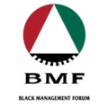BMF rates South African Managers
04 March 2014 - Today the Black Management Forum (BMF) provided findings of its Corporate Management Competence Index (CMCI) for use by key stakeholders to benchmark the progress of transformation from Junior to Top management. Since BMF's formation in 1976 its aim has always been to influence socio-economic transformation in South Africa.
The BMF CMCI is produced to develop and nurture managerial capacity and leadership. BMF consists of a diverse group of workers to develop and promote the interests of the disadvantaged majority of the population. According to a recent study of the Commission for Employment Equity (CEE) the legacy of apartheid is still reflective of a racial bias in favour of white people in senior management positions.
The BMF partnered with Plus 94 Research in developing the CMCI to pursue its goals of leadership in training and development, thought leadership and advocacy and promoting socio-economic transformation. The BMF CMCI study consisted of the top three tiers of management used across 514 companies and individuals, which took three (3) months to complete.
On the other hand, respondents were split into Top, Middle and Lower managerial tiers in line with the study objectives. The chosen participants for the sample were some managers of Johannesburg Stock Exchange (JSE) listed and unlisted businesses. The study was conducted in the provinces of Gauteng, KwaZulu Natal and the Western Cape. To yield a robust base for an analysis of the data by race, the sample contained 50% white and 50% black managers as defined in the PDI provisions to include Africans, Coloureds and Asians while the gender split of management contained 66% males and 34% females.
South Africa has a good mix of management by age group, with 15% of all managers between the ages of 20 and 30. The most critical age for a manager is between the ages of 30 and 40, which attributed for 39% of all managers, with a strong bias towards middle and more senior ranks of company leadership. However, the second biggest group with 22% of all managers interviewed, were those aged 41 and 49, the majority of them tending to occupy senior management positions, as was more emphatically the case for the largest group of managers aged 50 plus.
The index was developed after a literature review of available global best practice in combination with qualitative focus groups to pinpoint the key indicators of managerial competency. Consequently, the following framework is critical importance to the BMF:
- Qualifications and experience
- Interpersonal skills
- Natural flair
- Problem solving skills
- Building for the future
- Developing business success
Some of the key CMCI findings were that top management in South Africa is indicated as performing well above average, although when analysing the self-rated benchmarks most managers express a misgiving about their colleagues' competence. The other important aspect revealed by the research is that management needs an urgent redress in terms of innovation, as well as their lack to inspire subordinates. The two major drivers of white managers' rating are problem solving skills and interpersonal skills. For black managers there are four main index drivers, which are qualifications and experience, developing business success, problem solving and natural flair.
The most competent managers are in the 36 to 49 years age group, the peak being at the critical 36 to 40 year age group. The index has provided the BMF with great insight and intel on what can be done better to catapult transformation to the required, that reflect the demographics of the country.
Statement issued by Tshepo Sefotlhelo, Business Director, Ogilvy Public Relations, March 4 2014
Click here to sign up to receive our free daily headline email newsletter


